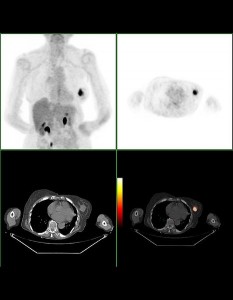THURSDAY, 16 DECEMBER 2010
In November 2010, worldwide experts gathered in Nice for the Cancer Biology for Clinician’s Symposium organized by the European Society for Medical Oncology (ESMO). The experts suggested that the future of cancer therapy lies in the development of drugs to target the specific molecules that drive each individual cancer. It has become clear from years of research that cancer is far from one disease and even tumours from the same organ vary from patient to patient. Nevertheless it is often possible to group patients with, for example, lung cancer into smaller subtypes and develop therapies to treat each subtype. Success using this method has already been proven in the breast cancer field, where drugs have been designed to specifically inhibit the estrogen receptor, which drives the growth of a large subset of tumours. According to the Office for National Statistics, death rates have fallen by more than a third since the drugs’ introduction.However, the only way these personalised treatments can become a reality is via radical changes to the way drugs are developed and brought to market. The co-chair of the symposium, Fabrice Andre from the Institut Gustave Roussy in France, said: "it’s clear that we urgently need a new paradigm for drug development, including targeted patient selection for clinical trials, shorter duration of clinical trials and improvement of the cost effectiveness of bringing a new drug to the market."
With new thinking from pharmaceutical companies, governments and clinicians it should in future be possible to screen a patient’s tumour for the correct drug, thereby revolutionising the field of oncology.
Written by Jessica Robinson

